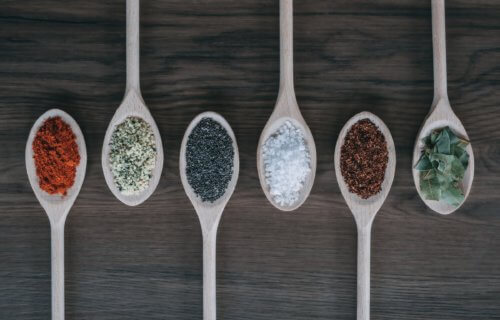UNIVERSITY PARK, Pa. — Seasonings are great for adding a little flavor to a bland meal, but a new study finds they may also be great at lowering your blood pressure too. Researchers from Penn State University say adding an extra teaspoon or two of herbs and spices to your food lowers blood pressure readings. Moreover, researchers didn’t even reduce salt or add more healthy foods to people’s diets to see a benefit.
Specifically, the team from Penn State and Texas Tech University discovered that an extra 6.5 grams (about a teaspoon and a half) of herbs and spices in a person’s daily diet lowered systolic blood pressure (the top number) and diastolic blood pressure (the bottom number) after four weeks. Researchers believe their findings offer people a simple and tasty way of improving heart health without major diet changes.
“Adding herbs and spices to your food is a great way to add flavor without adding extra sodium, sugar or saturated fat,” study author Penny Kris-Etherton says in a university release. “And, if you go a step further and add these seasonings to foods that are really good for you, like fruits and vegetables, you can potentially get even more health benefits by consuming that extra produce.”
Study authors note that blood pressure is a major factor in the development of heart disease — the number one cause of death worldwide. Typically, doctors try to improve a patient’s chance of avoiding heart disease by focusing on lowering blood pressure. One of the main ways of doing this is by reducing salt intake.
Do you have to give up salt? Maybe not
In an attempt to find a healthy (and equally tasty) alternative to salt, the team recruited 71 people with a health history that puts them at risk for heart disease. Each participant consumed three differently-spiced diets for four weeks, with a two-week break in between each test. One contained a high amount of herbs and spices (6.5 grams per day), one contained a medium daily dose (3.2 grams), and one had a small dose of extra spice (0.5 grams).
The spice mix researchers used included 24 different seasonings, including basil, thyme, cinnamon, and turmeric. Study authors tried to simulate the way people typically add these ingredients in their spice rack while cooking. Importantly, the team notes they added the herbs and spices to foods which are part of the normal American diet, without taking away other ingredients from the meals — including salt.
Researchers collected blood samples from each person at the beginning of each dieting period and during the break in between rounds. Results show participants saw their systolic blood pressure drop after eating the diet with the medium daily dose of herbs and spices. Diastolic blood pressure dropped when the group switched to the high doses of spices each day.
“I think it’s really significant that participants consumed an average American diet throughout the study and we still found these results,” Kris-Etherton concludes. “We didn’t decrease sodium, we didn’t increase fruits and vegetables, we just added herbs and spices. It begs the next question that if we did alter the diet in these ways, how much better would the results be?”
The findings appear in the American Journal of Clinical Nutrition.
